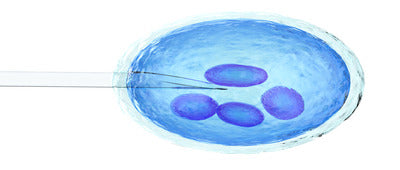IVF (in vitro fertilisation) can be a successful treatment for those wanting to become parents but struggling to conceive. However, the success rate of IVF treatment can depend on a few different factors — including age.
It’s important to understand how age can impact IVF success. Taking this into consideration can help you when deciding whether to have a fertility treatment or help to manage your expectations during treatment. Here are some things to keep in mind — including IVF success rates by age — when you are thinking about IVF.
How successful is IVF?
IVF is a type of fertility treatment that involves a woman’s eggs being removed from her ovaries and fertilised with sperm in a lab. An embryologist will then choose the strongest fertilised egg (known as an embryo) to be returned to the woman’s womb to grow and develop.
There are a few factors that can impact how successful IVF is, including sperm quality, egg quality, the woman’s age, and any reasons for infertility. The quality of your eggs will affect the success rate of your IVF treatment no matter what your age is, but as you get older, the quality of your eggs naturally declines.
At IVF Matters, our IVF success rates are double that of the national average, and this includes all age groups. Our dedication to our patients means we do our very best to help every single one on their journey — and our success rates reflect this.
Is there an age limit for IVF?
As you get older, your chances of conceiving naturally will decrease — and this also means that your chance of success with IVF is lower too.
While there isn’t an age limit for IVF treatment, it is not recommended for women over the age of 42, as the chances of becoming pregnant from the treatment are too low. It would also mean you may need more cycles of IVF before falling pregnant, and this can be quite taxing on you, physically, emotionally and financially.

IVF success rate by age
As fertility rates naturally decline with age, success rates with IVF can also follow a similar pattern.
While age does impact your success rates with IVF, so does your chosen clinic. Choosing a clinic that generally has high success rates may increase your chances, even if you are older. Consider your fertility clinic carefully, as it can make a big difference in your success.
Let’s take a closer look at the success rates for IVF by age.
IVF success rates under 35
Women under the age of 35 have the highest success rates for IVF treatment. This is because egg quality is still relatively high. The success rate for women under 35 is 32% in the UK, making this the best age for fertility treatment.
IVF success rates 35–37
For women over the age of 35 and up to 37, the chances of a successful pregnancy after IVF are around 25%. This is because you’ll have gone past your peak fertility window, so this is where your chances of conceiving begin to decrease.
IVF success rates 38–40
Once you’re at the age of 38–40, your chances of a successful pregnancy after IVF are between 11% and 19%, with the rate being higher when you’re in the lower age bracket.
The chances of you falling pregnant naturally at this age will have decreased by more than half too, so it’s easy to see why many women turn to IVF for support. Falling pregnant without a helping hand can be difficult at this age, meaning that sometimes fertility treatment is your only option.
IVF after 40 success rate
Once you turn 40, your success with IVF will decrease even further. Between 40–42, you’ll have around an 11% success rate, falling to 4% once you turn 45 and over. This is why IVF treatment isn’t generally recommended to women over the age of 42, as it’s unlikely that you’ll conceive.
Another reason that IVF isn’t recommended for women over 42 is that there are risks involved with being pregnant at an older age. Older mothers are more likely to experience things like high blood pressure, birth complications, diabetes, miscarriage, and stillbirth. Being pregnant over the age of 40 classes you as a ‘high-risk pregnancy’, which is another reason why it’s not generally recommended to have IVF older than 42.
What is the age limit for IVF on the NHS?
In the UK, IVF will only be offered on the NHS if certain criteria are met. If you can’t meet the requirements, then going private with a clinic like IVF Matters can be your best option.
IVF treatment on the NHS will also differ depending on your age. For instance, if you’re under 40, you can be offered up to three cycles of IVF if you’ve not been able to conceive naturally after two years of unprotected sex, and if you’ve not fallen pregnant via intrauterine insemination.
If you’re aged 40–42, you may be offered one cycle of IVF if you meet the above criteria, and also haven’t had IVF before, show no signs of a low number of eggs, and have been informed and accept the risks and complications of IVF and pregnancy at this age.
Where you live in the UK will also determine what IVF treatment you can receive, so it’s always best to check with your local NHS integrated care board (ICB) beforehand.
The ICB may ask you to meet additional requirements such as not having children already, being a healthy weight, not smoking, and being under a certain age — in some ICBs, this is under the age of 35.
Begin your IVF journey today
At IVF Matters, we offer IVF treatment to patients who want to start a family. We are proud of our high success rates, which are double the national average. We’ll provide you with a fertility consultation and fertility testing beforehand so that we can tailor your treatment plan — giving you the best chance possible of conceiving.
Our professional team of consultants will support you every step of the way, allowing you to go on this journey with confidence.
If you want to grow your family, book a consultation with us, and we’ll be happy to discuss your fertility options with you.






